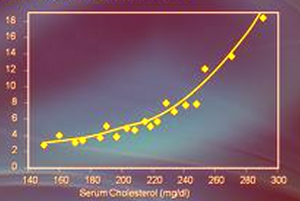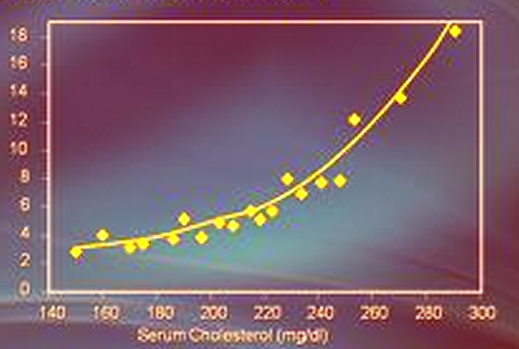Serum cholesterol refers to the total amount of cholesterol in the human body. Cholesterol can be distinguished as a waxy and soft substance that is found in the cells and blood. Suitable levels of cholesterol are in fact good for the body. However complications may occur if the levels are too low or too high. Cholesterol is an important constituent of cell membranes which are vital in making the important hormones.
Before we proceed to see the types of cholesterol let us understand the concept of lipoprotein. This is actually a molecule that carries lipids and proteins to the cells in the body. Hence this is how cholesterol is transported through the blood. There are two main types of cholesterol which are high density and low density.
Low density cholesterol can also be said as bad cholesterol. This type of cholesterol is transported from the liver to the other cells in the body. Since it travels via blood, it can get deposited in the arteries. To clean up this plaque build-up, white blood cells flock to the area in order to clean up the lodged cholesterol and other debris such as dead cells.

The arteries may harden because of the plaque build-up and it can lead to other symptoms such as high blood pressure and chances of heart attack. This is because the flow of blood through the arteries become restricted. The cells beyond the blockage are not able to receive their full quota of nutrients.
High density lipoprotein can also be termed as good cholesterol. This type of cholesterol is carried away from the cells and arteries to the liver. Here the liver disposes off the cholesterol. Hence we see that the direction of flow is reversed. This leads to less chances of plaque build up in the arteries. Hence we see that high levels of cholesterol are desirable.
You can take a cholesterol level test once in a while. This test is also known as lipid profile or lipid panel. Here you need to fast for at least 9 to 12 hours before the test. You can however drink water during this time. The doctor normally takes a blood sample during the test.
If the level of cholesterol is below 200 md/dl then this is good news. You have lower risk of developing coronary heart disease. If the level is between 200 and 239 mg/dl then this is a borderline cased. You need to make an attempt to bring the level down. Your doctor will also compare the balance of HDL cholesterol to LDL cholesterol. The doctor may suggest medication and some lifestyle changes. If the level is above 240 mg/dl then you have twice the risk of developing heart disease.
Here further analysis is needed and the doctor may recommend a series of treatments. We conclude that it is very important that the body should have optimum level of cholesterol so as to avoid further complications in the future. Eating healthy foods and exercise can do the trick.
